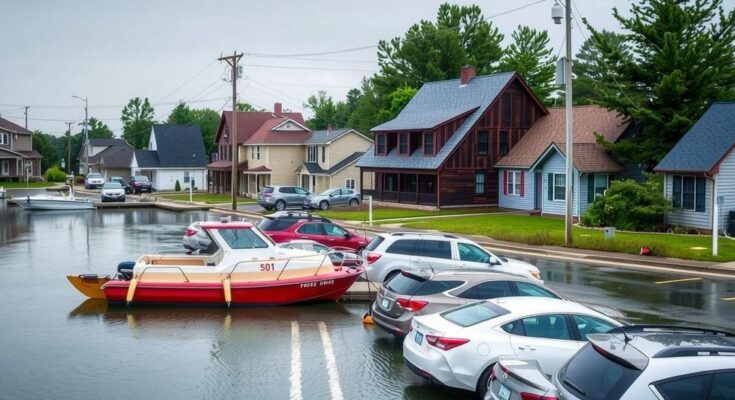Virginia Governor Glenn Youngkin proposed a $127 million Disaster Assistance Fund to aid residents impacted by Hurricane Helene. This fund aims to fulfill recovery needs not covered by federal assistance. Significant damage was reported across Southwest Virginia, with the governor seeking bipartisan support for the initiative to address these critical local recovery efforts.
Virginia officials are seeking further assistance for residents affected by Hurricane Helene, despite the opening of a FEMA Disaster Recovery Center in Mercer County. Governor Glenn Youngkin has proposed a $127 million investment to initiate a Disaster Assistance Fund managed by the Virginia Department of Housing and Community Development. This fund aims to address recovery needs not covered by federal assistance, private donations, or insurance. The proposal includes $25 million from the General Fund and $102 million from the Regional Greenhouse Gas Initiative, aiming to support safety and housing recovery efforts.
The governor emphasized the severe impact of Hurricane Helene on Southwest Virginia, with over 310,000 residents losing power and extensive damage to infrastructure, including 484 roads and 118 bridges. The agricultural sector faced an estimated $630 million in related losses, affecting nearly 3,700 farms. Meanwhile, recovery efforts continue in nearby West Virginia, where both FEMA and SBA Recovery Centers have opened to assist local residents. Governor Youngkin will present legislation to endorse the Disaster Assistance Fund to the Democrat-controlled General Assembly next year, aiming to establish a financial reserve for future natural disaster needs.
Overall, the initiative reflects a proactive approach to maximizing recovery efforts for communities in distress following natural disasters. The proposal’s passage will rely on bipartisan support to secure vital funding for affected populations.
Following Hurricane Helene’s devastation in late September, with significant impacts felt in Southwest Virginia, state authorities are mobilizing support through proposed financial initiatives. The hurricane’s aftermath left thousands without power, impaired infrastructure, and substantial agricultural losses. Consequently, the region seeks additional resources to bolster recovery efforts, particularly through the establishment of a Disaster Assistance Fund that would provide access to financial assistance outside federal support. This initiative aims to fill gaps in recovery and ensure local communities can rebuild effectively.
In summary, Virginia’s pursuit of additional assistance for Hurricane Helene victims illustrates a significant commitment to local recovery efforts. The proposed $127 million Disaster Assistance Fund reflects a proactive strategy to tackle unmet needs arising from the disaster. With bipartisan support needed for legislative approval, it is crucial that the General Assembly recognizes the urgency of aiding affected communities, ensuring adequate resources are directed towards recovery initiatives.
Original Source: www.bdtonline.com




